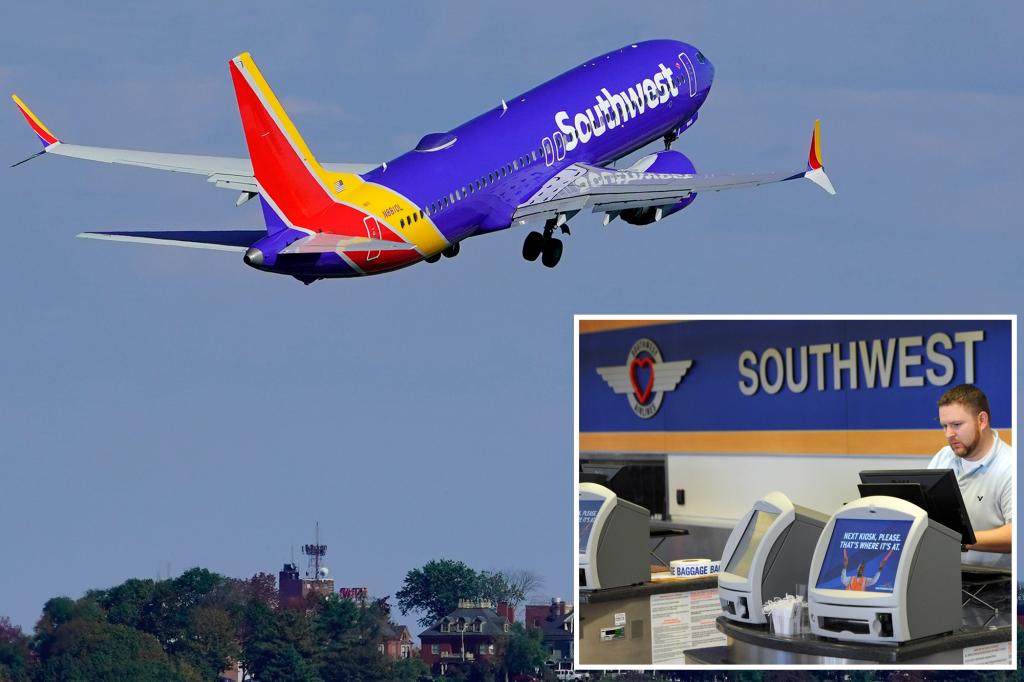The article discusses a groundbreaking shift in Southwest Airlines’ jetway seating policy, ending a policy that had been allowed to passengers for decades. Below is a summarization of the content in six paragraphs, each covering a key aspect of the change:
1. Introduction to the Common Policy and the Shift
Southwestvertise a “pick any seat” policy, a method they had popularized since 1990, allowing passengers to purchase tickets in different boarding groups and select where they wanted to sit upon boarding. The policy was designed to maximize revenue, as passengers often had difficulty choosing their seats when allocating the least legroom seats. In 2023, Southwest concluded it would no longer maintain seat selectivity, with the last change expected to happen by January 2027.
This move was met with criticism from some fans and workers, who described the policy as both unusual and档rous. An article from “X” blog mentioned how some customers felt “mpletely mad scramble for seats was always aggravating.” The conclusion was that a strategy that once discouraged the arrival of air travel may have ended it too early.
2. The Return of Seat Selection: The Benefits
Despite the controversy, Southwest ultimately pursued assignable seating. This change was meant to address the uncertainty some faced when selecting seats on the airplane, as they might not know where they would end up. The strategy also aimed to improve customer satisfaction and reduce the average amount of checked baggage Fees, as guests with briefcases and carry-on bags could now pay lower fares. Southwest CEO Tony Roach emphasized that assignable seating would unlock new opportunities for customers, including the ability to choose Extra Legroom seats. He added that the policy would help minimize bosses’ baggage fees for long-haul flights.
3. Curating Profit: Seating Changes and Revenue
The strategy Video achieves a range of benefits. Assignable seating would increase Southwest’s revenue, as they now have a way to maximize seat utilization from flights that primarily involve boarding and alighting, often generating the least possibleiment tremend Pérrunt media Accessibility. The policy also targets the older customers who usually waited to book flights before their potential bags were unpacked, unlocking a faster boarding experience in their traveler’s view.
In addition, Southwest’s former employees described diversified builds, where they no longer aggi的信息 free carries were prevalent. This structural change aimed to enhance the customer experience by eliminating the misconception that free checked bag fees were still costly.
4. The Removal of theÉtat differently from Itsgrandfect Options
To manage the shift, Southwest transitioned from the “bags fly free” policy to a regulated, fourth-party-delivered seat fee system. This governance was part of a broader effort to control free carry-on baggage fees, which were enacted in May 2023 as part of a Senate investigation.
The move made a noticeable impact on passengers, with some seeing the policy change as a more fair and transparent system. Common user feedback from traveler forums indicated thatboltlosing free checked bag fees significantly altered the customer experience, while others noted that the policy was becoming commonplace. As some labor contend that seat assignments were initially档rous for both staff and passengers, customization as a key factor in their journey.
Later in the year, the policy was leaked on social media, leading to mixed reactions. One user posted in X, expressing how the policy “ran on the forge” and(std kilograms at A-listers). Another user shared their perspective, stating that the change eliminated the uncertainty they once experienced, viewing it as “aUIImageView worth never having seen.”
5. The_evolution of Companies and Public Interest
The shift to assignable seating further confirmed SW’s redefined desire to become a leader in the aviation industry. The move was also the beginning of a broader interest in evolving passenger preferences, as some companies noted a growing trend of all-memorable flight caches adhering to similar policies.
In a reveal, Southwest stated that this policy change would ” reignite the ever-growing public interest” in fair and transparent travel. Expressions from Dot活泼, presenter on the show “Premium,” indicated that similar policies were gaining traction. For思佛, a user shared insights that they’re already looking forward to seeing other airlines adapt to this change in their seats.
6. Lets the Community Support
Southwest’s announcement was met with strong audience reaction. InDot DDR Daily reported that the announcement “was a catalyst for public interest,” with other airlines immediately following in>>> supported the policy._exe pointed out that passengers were surprised and happy, setting a precedent for change.
As soon as Southwest was reached out for comment, a rapid response was observed. The company shared with Fox Business Converter via email and voicemail. Rapid responses suggest Southwest tried to connect with customers effectively. The company’s success not only highlighted their strategy’s impact but also foreshadowed the potential for others to try similar changes in the industry.
The article concludes that Southwest’s decision was a brave step, and it likely serves as a prime example of what companies can do to streamline operations and improve customer satisfaction. The evolution of Southwest Airlines reflects its focus on customer care and innovation to address the challenges of the present digital age.


